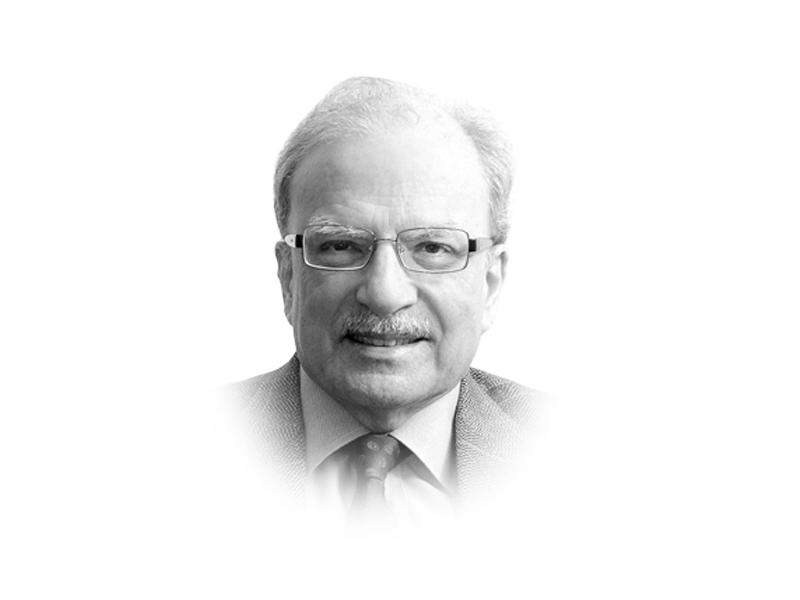
Understanding what was outside became an academic industry that occupied two generations of economists’ calculus. They expanded the production function to include factors such as technology, human resource development and institutions. But political processes did not find their way into the economists’ production function. That began to change but only slowly. In the late 1960s, Samuel Huntington, of the Clash of Civilisations fame, postulated that economic progress may be disrupted by political change. That was the time when the regime of President Ayub Khan that had produced the “decade of development” fell, brought down by the people who were not happy with what they had received from the economic miracle. About the time Huntington put forward his hypothesis about political order in changing societies, Albert O Hirschman, also of Harvard University, came out with a little book, Exit, Voice and Royalty, in which he spelt out the choices generally available to alienated people. They can remain loyal to the system hoping that change will come from within, or raise their voice and clamour for change, or simply exit. Politics, in other, words, matter a great deal for sustaining economic progress.
More recently, an economist and a political team working together have written a powerful book, arguing that without political progress, sustainable economic advancement cannot happen. In Why Nations Fail, Daron Acemoglu and James Robinson argue that inclusive economic advancement can only occur when political systems are also inclusive. That means that political development should precede economic progress. However, they don’t suggest how and why exclusive political systems become inclusive or having become inclusive, remain that way.
Political systems need to constantly evolve to keep pace with change. Change results mostly from the way economies evolve and societies develop. Change can be internal as well external. Two recent examples of the latter are the rise of the Islamic State and the growing tension between Iran and Saudi Arabia. Both developments have consequences for Pakistan and both will need robust political institutions to deal with them.
Accommodating change is easier when there are representative and inclusive organisations operating in the field of politics. That is the role political parties play. However, in the absence of such organisations, other means for dealing with change are developed. This is why I believe that after more than 60 years of trial and error, Pakistan has finally begun to move towards sustainable political development. In 2007, President Pervez Musharraf, the country’s fourth military leader, having allowed some space within which political processes could work, made a failed attempt to go back. He put on the army commander’s hat and first tried to remove the Supreme Court chief justice in March and then, eight months later, he put the country under a state of emergency. The second move was to result in the general’s trial for sedition on the ground that he had subverted the Constitution.
By the time Musharraf made his second move, the space allowed for political play meant that the activists opposed to these efforts were able and prepared to hold their ground. Musharraf yielded to street pressure, allowed fair and free elections to be held, and when these were won by traditional political parties, the general got the message. He resigned and left the country. Since then, politics have made progress but not moved in a linear way. There were ups and downs but the important thing to recognise is that change came from within the system and not from the outside. When ‘revolution’ was attempted as was the case by the cleric Tahirul Qadri, he couldn’t go very far.
This within-the-system change happens in both developed and developing countries. The ideological struggle in the Democratic Party in the US is a good example of how it occurs in developed countries. EJ Dionne who wrote one of the more readable accounts of the 2016 political season in the US summarised the situation well: “Most share Hillary Clinton’s views that gradual reform is the most practical way forward. Most also agreed with Bernie Sanders that even moderately progressive steps will be stymied if big money’s influence is left unchecked, if progressives do not find new ways of organising and mobilising, and if so many white working-class voters continue to support Republicans.”
Political development, therefore, is a tender plant that needs a lot of loving care. Even in countries such as the US that have a well-established Constitution, the effort to subvert the system goes on. In the electoral process that is now in full play, big money is trying hard to twist the system in a way that will serve its purpose.
Published in The Express Tribune, February 13th, 2016.
Like Opinion & Editorial on Facebook, follow @ETOpEd on Twitter to receive all updates on all our daily pieces.












COMMENTS (2)
Comments are moderated and generally will be posted if they are on-topic and not abusive.
For more information, please see our Comments FAQ